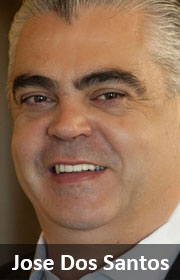 MTN and Vodacom have declared war on consumer interests. The infamous duopoly wants to limit how we use Internet services like WhatsApp — and it has nothing to do with fairness, competition or the future of South Africa. To the contrary, it is all about maintaining their stranglehold on a vital artery feeding our country’s economic and social future.
MTN and Vodacom have declared war on consumer interests. The infamous duopoly wants to limit how we use Internet services like WhatsApp — and it has nothing to do with fairness, competition or the future of South Africa. To the contrary, it is all about maintaining their stranglehold on a vital artery feeding our country’s economic and social future.
The two mobile networks have now successfully lobbied government to investigate potentially regulating over-the-top (OTT) services like WhatsApp. I suppose it was inevitable. Vodacom, for example, has said: “You have these [OTT] players which are getting huge benefit out of an industry without making any investment. It has also said: “Operators need to continue making a return.”
MTN has been less diplomatic. Former MTN South Africa CEO Ahmad Farroukh was quoted as saying that MTN was not prepared to spend billions of dollars building networks just so that OTT players can get a “free ride”. His successor, Mteto Nyati agrees: “You have to regulate them because clearly they’re making a huge amount of revenue on top of the infrastructure that the operators have paid for. Somehow they have to contribute towards the building of this infrastructure.”
Suddenly they are concerned with “levelling the playing fields” – but only now, when they face competition.
Regulation itself is not necessarily a bad thing and South African telecoms regulation could definitely use a little modernisation. We need to ask serious questions about privacy, consumer rights and infrastructure sharing to reduce costs. But in this case, that is not Vodacom or MTN’s aim. Instead they are hoping to confuse the issue, rather than sticking to clear, reasonable arguments.
Regulation would impose new costs, costs that would either prompt OTT players to withdraw their services from South Africa or push up prices for the consumer, the very consumer that already pays for the data to use those services.
It is not hard to imagine the motivation of MTN and Vodacom, as both have historically resisted any attempt to “level the playing field” in the mobile industry. They have fought number porting and the elimination of interconnect fees. These are companies that have shown no interest in the welfare of the customers who keep them in business.
We believe that OTT services encourage consumers to participate more. The more they participate, the more they spend. Cell C is still a business and must make money. But good companies adapt and change to create new opportunities for themselves and their customers. Bad companies manipulate the system to only get what they want — the customer doesn’t matter.

I invite South Africans to interrogate the motivations of companies that would support this kind of regulation.
Connectivity is key to the welfare of a 21st century nation. These platforms empower individuals and communities. They allow people to connect and be part of a global community. Now think of all the conversations we have every day on Facebook, WhatsApp, Google Talk, Skype, WeChat and more. Consider the many services such as Gmail, Office 365, Sage accounting and so on that allow small business to start and flourish.
OTT regulation will force extra costs on those services or force their withdrawal. It will hurt consumers and small companies. It will disadvantage everyone — everyone except the networks whose only interest resides in protecting their revenues.
Cell C has proven that by opting for partnerships instead of bullying, you can work alongside OTT services to the benefit of everyone. We offered free WhatsApp services for a year, during which Cell C customers did not spend any data to send messages. Since we have transformed this into a low R5/month offer and opened our free services to include Facebook.
As a consequence, we have not lost customers. We have grown and those customers have grown as well. They are more connected and informed, but without needing to pay more for the privilege. No, not privilege. It’s a right. It is not fair that those with a voice are only those who can afford to have one.
As I said in the beginning, regulation of the telecoms space is a conversation that should happen. But what MTN, Vodacom and their collaborators are trying to do is not address the big issue. They simply want to protect what they have and they are happy to sell the consumer out in order to get that.
As it stands, Cell C does not support OTT regulation in South Africa, because the only losers will be the people whose money make us all successful businesses in the first place.
- Jose Dos Santos is CEO of Cell C

